In Chwebeni village outside Port St Johns in Eastern Cape, children have started developing red rashes and are losing their hair, conditions their mothers and grandmothers say are linked to the water the children have to drink and wash in.
The village’s women, some elderly, collect the water daily, navigating a narrow path down a steep hill carrying old paint and oil buckets and a pair of gumboots they share.
There is a stench at the water hole they share with cattle and pigs and the ground is slippery with dung. One woman, wearing the shared gumboots, fills everyone’s buckets before slipping off the boots, and then the group, buckets on their heads, slowly start their walk back to the village.
“We are very worried about the water,” said Nosalathiso Phetshana, the vice-chairperson of the Chwebeni Community Development Forum. “There is no other water we can use.”
She said they had tried to raise the health condition of the children with authorities but to no avail.
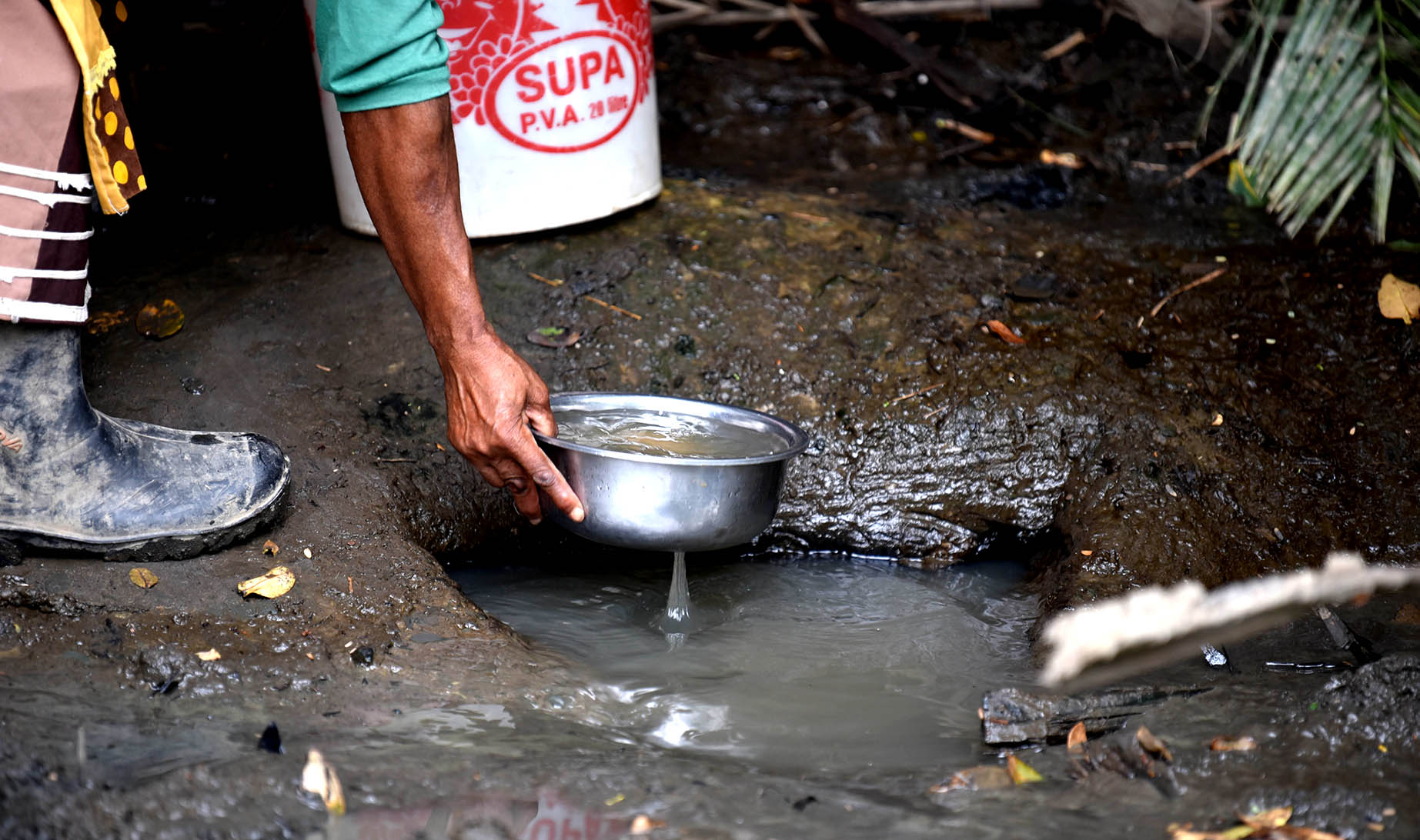 This is what the water consumed by Chwebeni residents looks like. (Photo: Deon Ferreira)
This is what the water consumed by Chwebeni residents looks like. (Photo: Deon Ferreira)
Read more in Daily Maverick: Water crisis in Eastern Cape villages points to general collapse of municipalities across the country
Anke Hannemann, a vet from Germany who lives in the area, said the water situation was worrying. “I have seen the children covered in a red rash and their hair falling out. It is not only this village. All the villages around here are affected.”
When asked why the taps in Chwebeni had run dry, the OR Tambo District Municipality claimed that illegal connections had “destroyed the water distribution system”.
Read more in Daily Maverick: Poverty-stricken Port St Johns gogo dead at 91 after endless wait for housing, service delivery
Municipal spokesperson Zimkhita Macingwane said Chwebeni was at the “dead end” of the Port St Johns reticulation system.
“The treatment plant can no longer meet the demand due to rapid expansion that took place in the urban area,” she said.
She said the taps were installed in 2004 but had run dry because of “high demand, ageing infrastructure and illegal connections”.
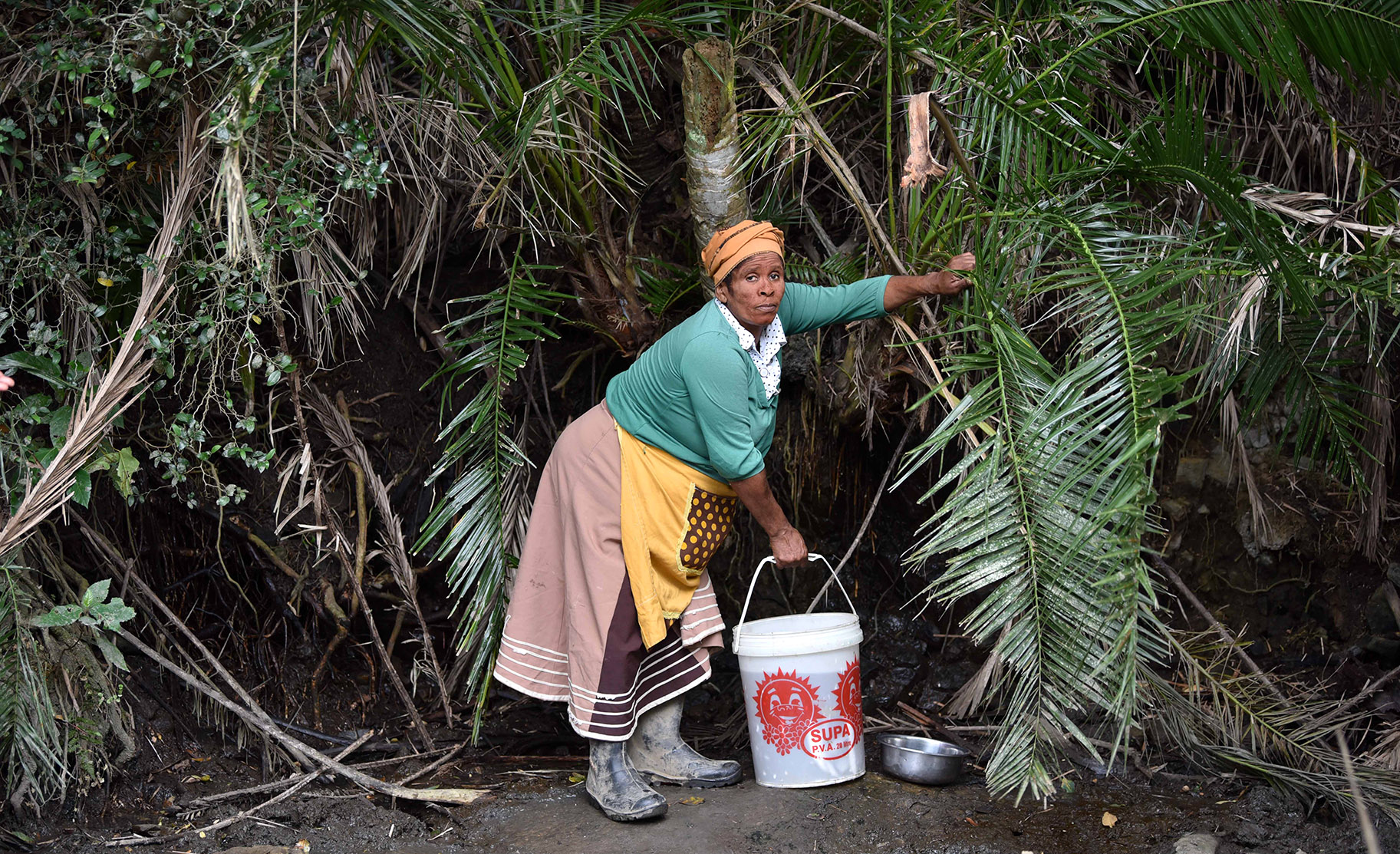 An elderly women in the village collects water, 15 March 2024. (Photo: Deon Ferreira)
An elderly women in the village collects water, 15 March 2024. (Photo: Deon Ferreira)
Missing borehole
Last year, during a visit by the Eastern Cape Department of Social Development, a briefing document proudly claimed that a borehole provided water to Chwebeni and its surrounding villages.
When asked to pinpoint the borehole’s location, Macingwane said the municipality was “in the process of drilling a new borehole” to augment water provision.
She said they had resorted to water rationing and were sending water tankers to augment the supply in the village.
She said the municipality was unaware of waterborne diseases in the community.
The Cwebeni Community Development Forum and the local school’s principal, Zuzekile Duna, have written to the humanitarian organisation Gift of the Givers for assistance, offering the school’s property as a good space for a community borehole.
The community development forum said that pigs were also drinking from their water source, the water “has diseases” and that adults and children were getting skin rashes and stomach aches from it.
The school has close to 800 learners, who use four pit toilets, as a newly built ablution facility cannot be opened because of the water problems.
“For over seven years, our whole community has suffered because we don’t have clean water,” Duna wrote.
“Every day, we face the challenge of getting water from dirty sources, mostly the same water that animals drink from. This dirty water makes our children and community sick with diseases and viruses.
“Without clean water, daily tasks like cooking, bathing and growing food in our gardens are very difficult. A borehole would make a big difference to us. It will greatly improve life for thousands of people in our community.”
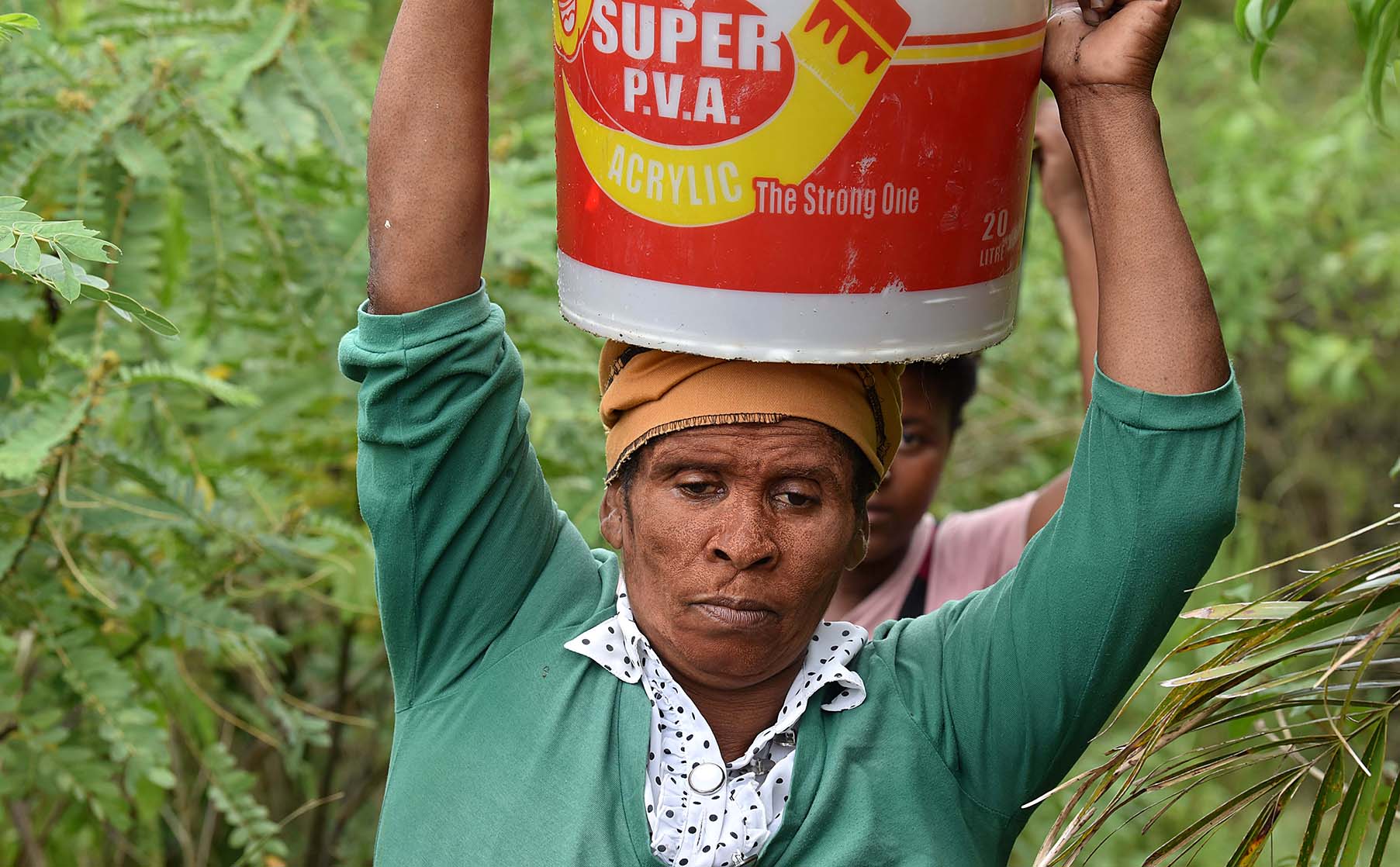 An elderly woman makes her way home after collecting water, 15 March 2024. (Photo: Deon Ferreira)
An elderly woman makes her way home after collecting water, 15 March 2024. (Photo: Deon Ferreira)
‘Action plans’
Dr Eileen Carter from the South African Human Rights Commission said her commissioners had seen the water source at Chwebeni, and a meeting was held last week with the community.
The meeting was attended by the Department of Social Development, the Eastern Cape Department of Cooperative Governance and Traditional Affairs, the local municipality, the Department of Home Affairs and the Eastern Cape Department of Health.
“All parties committed to formulating action plans,” Carter said. “The water issue was discussed extensively, including groundwater concerns, treatment plant, water tankers, illegal connections … and several challenges relating to the locality of the community were highlighted. We will now receive and monitor the action plans. The complainants are aware of the way forward.”
A series of emails provided to Daily Maverick, of communications from the Department of Water and Sanitation (DWS), further highlights how chaotic the water situation in Chwebeni had become.
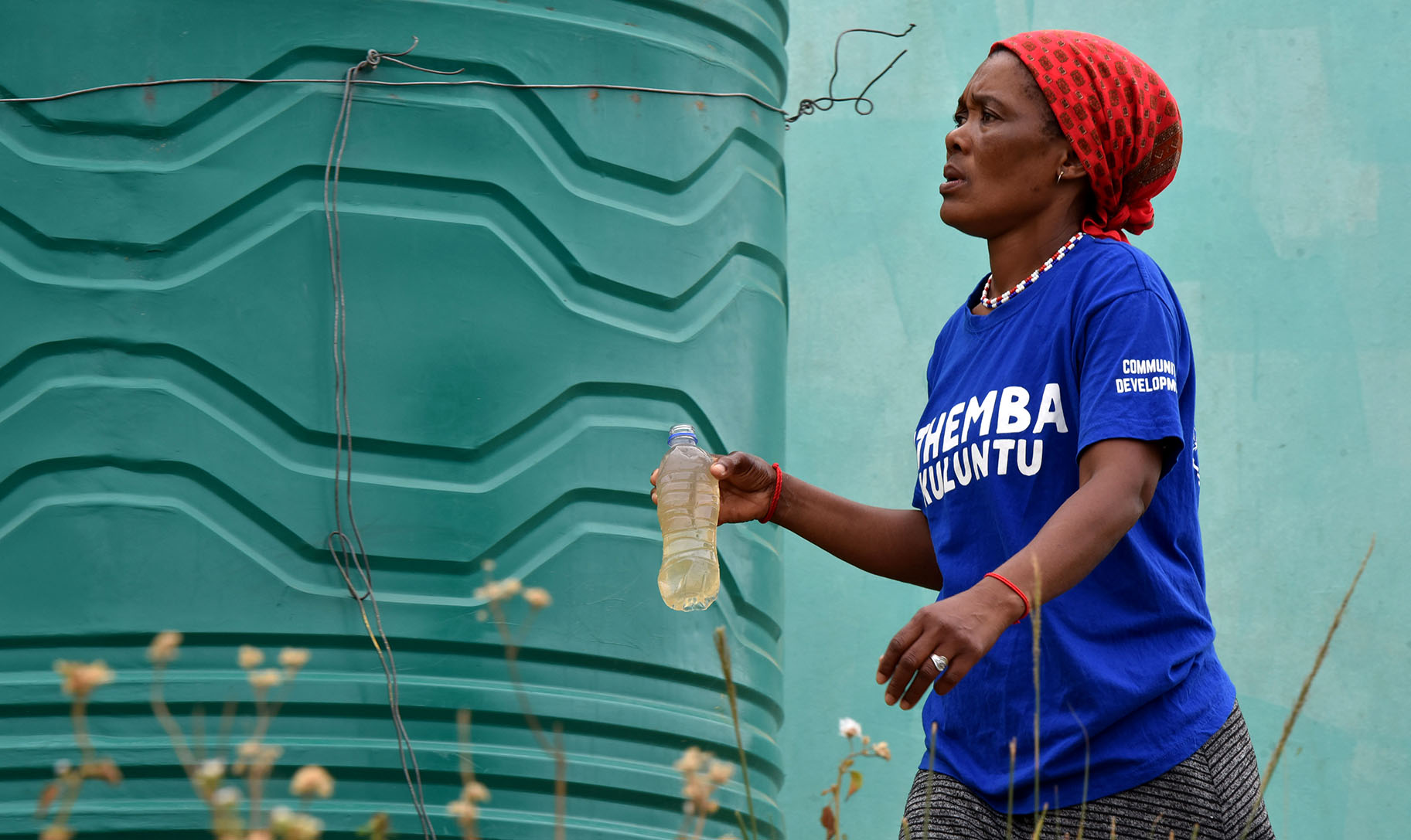 A villager with discoloured water, 15 March 2024. Communal taps ran dry four years ago. (Photo: Deon Ferreira)
A villager with discoloured water, 15 March 2024. Communal taps ran dry four years ago. (Photo: Deon Ferreira)
Read more in Daily Maverick: Villages suffer while bloated costs, contractor trouble halt Eastern Cape water project
In February, the DWS reported that all the “pipe breakages” that had prevented water from getting to Chwebeni and its neighbouring village, Bholani, had been fixed. However, because of load shedding, only minimal water was available.
A water truck was sent to Chwebeni, but the water was so dirty that the community could not drink it.
Next, the DWS reported that leaks in the distribution system were “depleting the water” before it reached the taps.
The email exchanges stressed that there were pipe bursts on the delivery line “every day”, which made it difficult for officials to provide a timeframe for when the water would be restored. DM




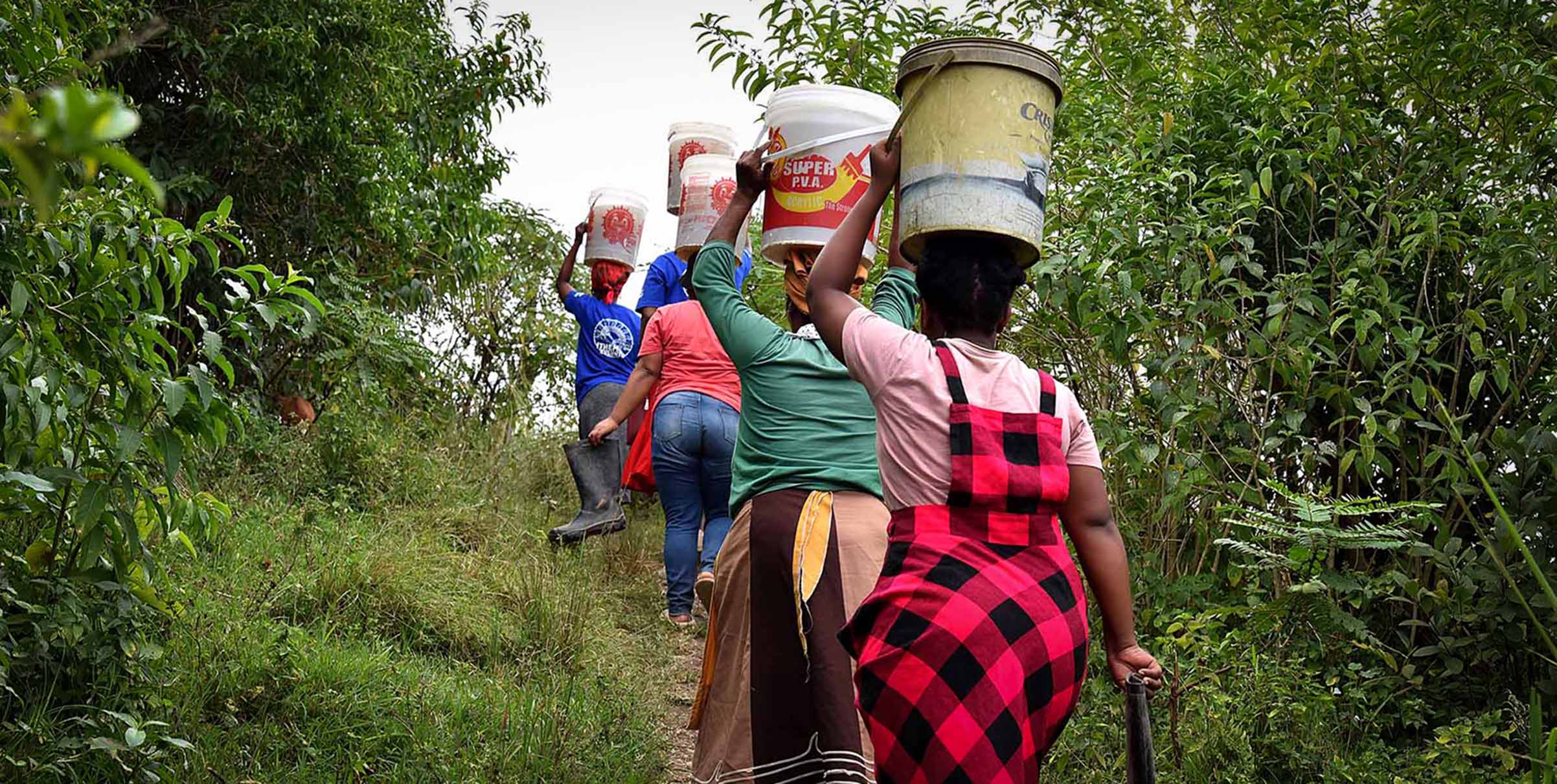 Villagers have no choice but to drink the contaminated water as the communal taps have run dry 4 years ago. 15 March 2024. (Photo: Deon Ferreira)
Villagers have no choice but to drink the contaminated water as the communal taps have run dry 4 years ago. 15 March 2024. (Photo: Deon Ferreira) 